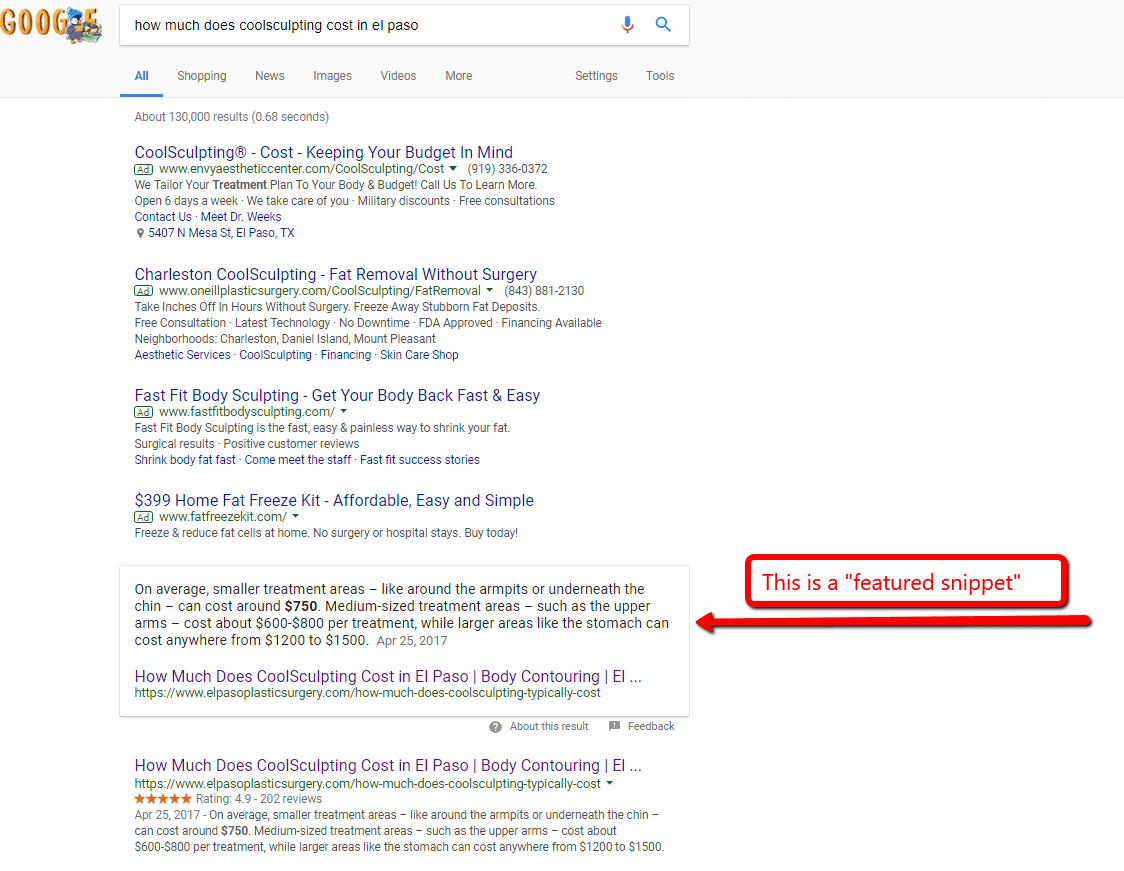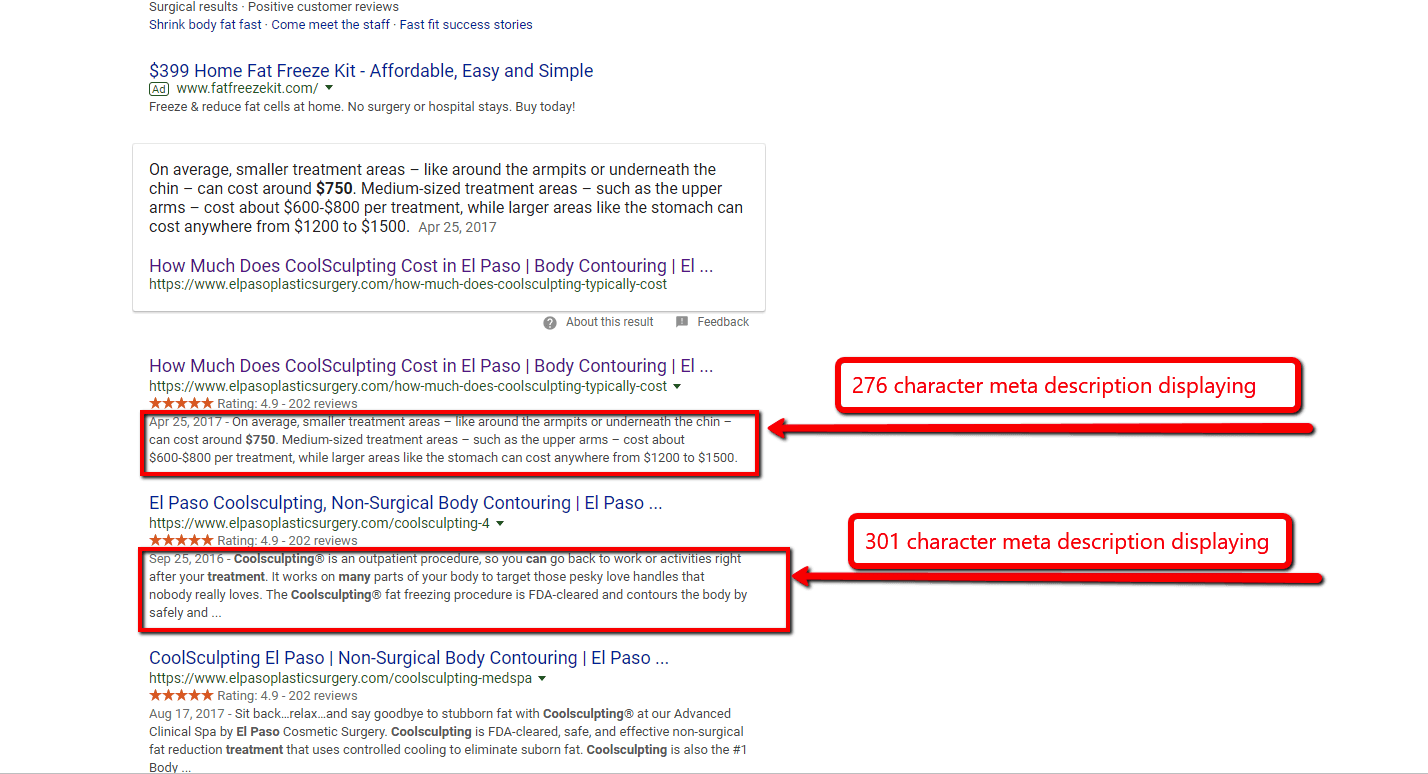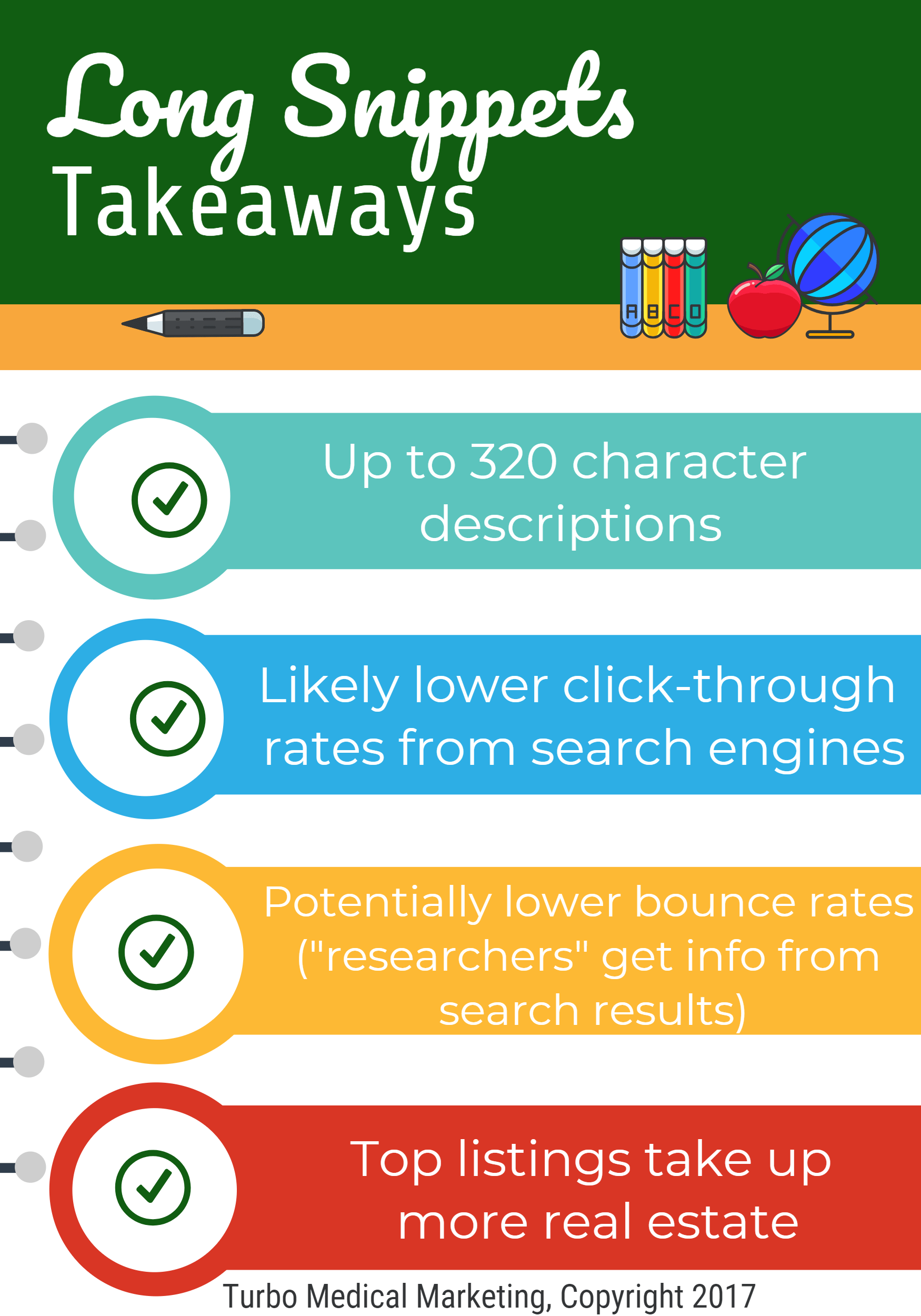Back in late November, Google updated its search results to show longer snippets in search results. In this article, I’ll dive into exactly what that means and how it affects your practice’s SEO.
Before we get into details about the latest update, it’s worth pointing out that the snippets I’m referring to are directly tied to a website’s meta description. I’m not referring to the boxed “featured snippet” that you sometimes see in search results. The featured snippets tend to show up when a user has a specific question or does a long-tail search, as you can see below…

The longer snippets I’m referring to are actually the meta descriptions that show up underneath the blue hyperlinks you see in search results. Meta descriptions, along with title tags, are two of the main components of on-page SEO.
However, in the past Google would put limits on how much of the title and description would show in search results. This was often viewed as somewhere in the range of 57-70 characters for title tags and 160-170 for meta descriptions. Many WordPress SEO plugins, such as Yoast and All in One SEO, list these limits in the title tag and meta description fields, and if you go over you’ll see some kind of warning, as if you’re doing something harmful.

With the most recent update to Google’s search results, your organic listings can display nearly double the number of characters. According to SISTRIX research, 90% of search results prior to November 16, 2017, had a description of two rows or less (roughly 170 characters or less). By December 17th, nearly half of search results showed a description of three rows or more.
Below is an example of the same search you see in the graphic above, but we’re now highlighting the length of the meta descriptions. As you can see, the first two results are 276 and 301 characters, respectively.

So how long can meta descriptions now be?
Google’s Danny Sullivan, former Chief Content Office at Search Engine Land, noted on Twitter that you likely won’t see more than 320 characters in search results.
So what does this mean for my practice?

For starters, you can now write longer, more in-depth descriptions for every new page or post on your website and it may show in search results. Your ability to thoroughly summarize the content in a way that entices a click will be crucial. That said, Google’s goal here is to provide more information, and with more information, users may not even need to click your link because they’ve got their answer.
If search results and descriptions are more insightful you’ll see fewer clicks from patients in the research phase. Your click-through rate will drop, which isn’t ideal. However, it’s safe to assume that these same prospective patients, who in the past might have clicked to get more info during their research phase, likely drove up your bounce rate on certain pages after they found what they’re looking for.
Lastly, since the descriptions are now longer, the individual search results take up more real estate. As noted above, descriptions used to be two lines or less, and now we’re seeing 3-4 lines. This means results are getting pushed further down, resulting in fewer impressions and clicks for results near the bottom of page 1.
The caveat
Before you conclude: “I need to run and lengthen all my meta descriptions” take a deep breath. In many instances, Google isn’t even actually pulling your meta description in the description field of your search results. In many cases, they’re pulling content from your page. Therefore, you don’t need to update every page on your website, but I would start by picking the top 5-10 content-heavy pages (think procedure pages and not specials or gallery pages) – based on Google Analytics data – and “enhance” your meta description on them.
Google’s John Mueller pointed out in a recent SEO roundtable that meta descriptions aren’t going to affect your rankings, whether they’re short or long. However, they can influence the way patients see your website and whether they click to learn more.
If you have any questions about the recent snippets update or SEO in general, feel free to leave us a note here or call us at 877-673-7096 x2.






